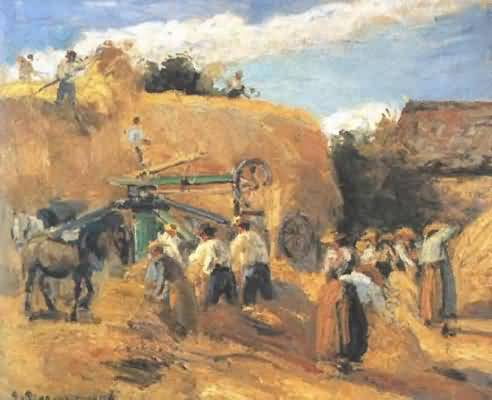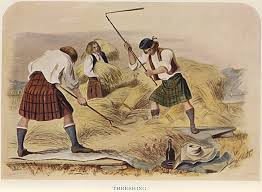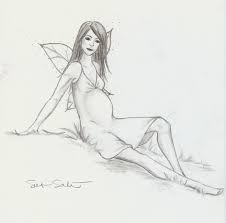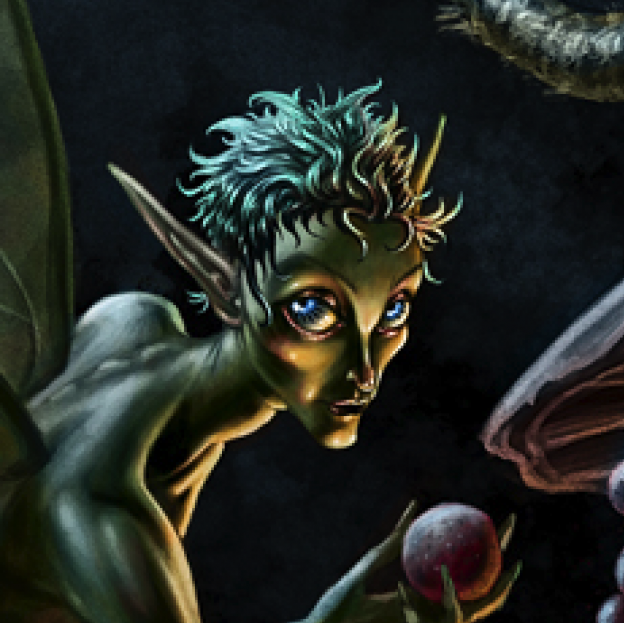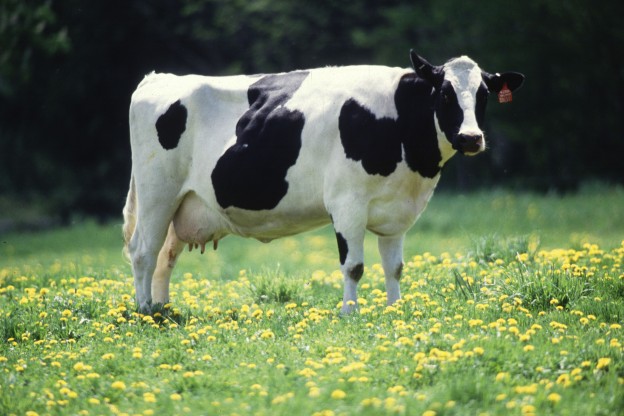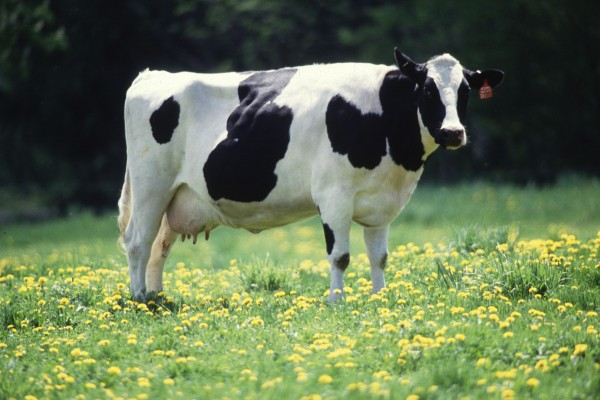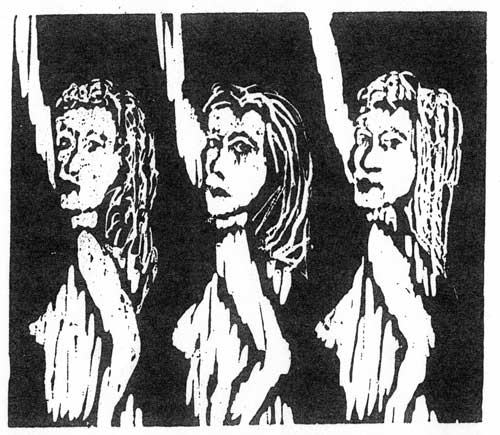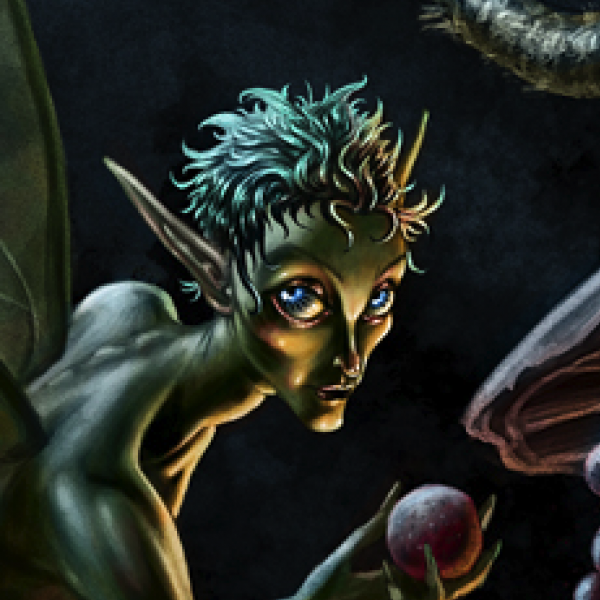
Occasionally the fairies, being Irish, display a certain sense of humour, as in the case of Johin Connors, a farmer who lived near Killarney, whose delight was so great on being presented by his wife, after seven daughters, with a son. that he broke his spade in the ditch for joy and started off to the next parish to find sponsors for the Christening, not considering anybody in his own parish worthy of the honour. He had however not gone very far before he met a stranger riding on a white horse, attired in red knee-breeches, a swallow-tailed coat, and a tall hat, who asked him where he was going. ‘I’m going,’ said Connors, ‘to Beaufort to find sponsors for my young son.’ ‘Oh, you foolish man,’ said the stranger, ‘you left the road a mile behind you. Turn back and take the left hand.’ John Connors, having done as directed, had not ridden very far along the new road, when he met the same gentleman again, who once more redirected him on his way. As a matter of fact, all that night he kept meeting the stranger, who finally invited him to his house, and insisted on his staying with him till the morning. Once Connors was asleep the stranger took his clothes, formed a corpse the exact imitation of the owner, put the clothes on it, tied the body to the horse, and leading it outside, turned its head towards home, keeping Connors himself in bed for three weeks. The horse in due course found its way home, and the people seeing the corpse on its back, took it for Connors, to whom they gave a great wake that night, ‘everybody mourning and lamenting over him, for wasn’t he a good man and the father of a large family.’ Three weeks later Connors was awakened by his host and told to go home. ‘But where are my clothes?’ asked Connors, sitting up in bed and looking round him. ‘I know nothing of your clothes,’ said the stranger, ‘and the sooner you get out of this the better.’ ‘But God help us,’ said Connors, ‘how am I to go home without my clothes? If I had a shirt itself it wouldn’t be so bad; but to go without a rag at all on me!’ ‘Don’t be talking,’ said the man; ‘take a sheet and be off with you. I have no time to lose on the like of you.’ John being afraid of the man, took the sheet and went out. Now it is the custom in Ireland when any-body dies to sprinkle Holy Water on the clothes of the deceased and to give them for God’s sake to the poor, thereby ensuring having them for their own use in another world; so that when John Connors appeared in his native town in a sheet the people who saw him, on recovering from the shock, rushed to his wife and accused her of not having given his clothes to the poor, since his ghost was roaming about in nakedness. ‘Indeed,’ said the wife. ‘I did give them away; it must be that the man I gave them to didn’t wear them to Mass, and that is why my poor husband is naked in the other world.’ Whereupon she went for the neighbour and proceeded to revile him. ‘Bad luck to you, you heathen,’ said she. ‘I did not think you the man to leave my poor John naked in the other world. You neither went to Mass in the clothes I gave you nor sprinkled Holy Water on them.’ The neighbour having however proved to her satisfaction that he had performed all the necessary rites over the garments, the widow returned home, only to receive that some night a visitation from the ghost. Overcome with terror, she hid herself and her children under the bed-clothes, leaving John tapping at the window while she offered prayers for the repose o his soul. Wherever Connors appeared it was always with the same result; even the doctor, having seen him through the window, refused to open the door for him. At last he betook himself to the priest, whose house-keeper, having opened the door, fell in a fit on the stairs on seeing the apparition. The priest hearing the noise, ran out, and finding himself face to face with the ghost of the corpse over whom he had said Mass, refused to believe that he was alive. ‘If you are,’ said he, ‘where are your clothes?’ ‘I don’t know where they are,’ said Connors, ‘or how they went from me, but I haven’t them sure enough.’ ‘Go into the kitchen,’ said the priest; ‘I’ll bring you clothes, and then you must tell me what happened to you.’ Connors having related his adventures ‘Tis Daniel O’Donoghue, the fairy chief, King of Loughlein (Killarney), that played the trick on you,’ said the priest. ‘Why didn’t you get sponsors at home in this parish for your son as you did for your daughters?’ And having duly admonished him for his pride andwilfulness, the priest accompanied him to his wife’s house, where in answer to their knocking they were only met with renewed prayers for the repose of Connors’ soul. After some time, however, the priest prevailed on her to open the door, and finally succeeded in convincing her that her husband was really then in the flesh. Once restored to the bosom of his family, it is not surprising to hear that after all his adventures in the sheet, “no matter how large his family was in after years, John Connors never went from home again to find sponsors.” Edith Gordon ‘Some Kerry Fairies’ Kerry Archaeological Magazine 6 (1911), 347-356 at 354-356






